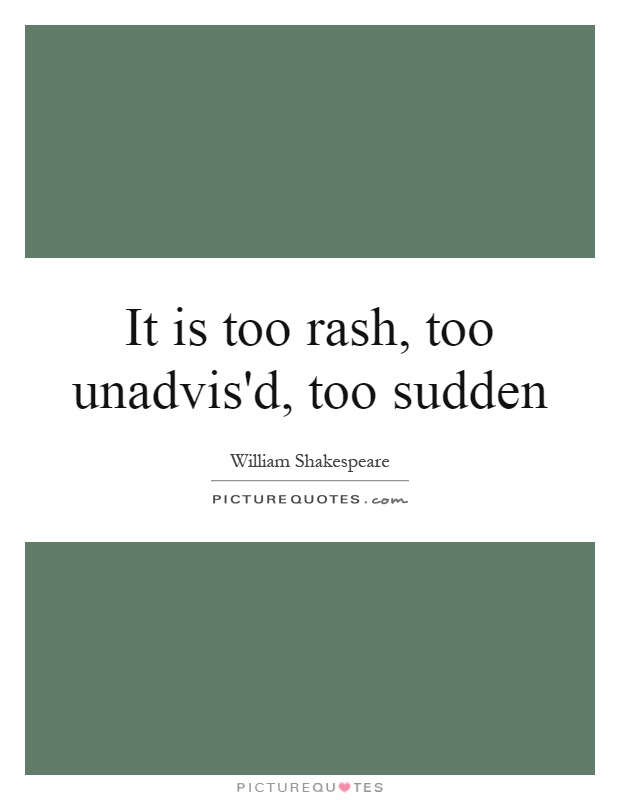It is too rash, too unadvis'd, too sudden

It is too rash, too unadvis'd, too sudden
In the world of William Shakespeare, the phrase "It is too rash, too unadvis'd, too sudden" is a common theme that appears in many of his plays. This phrase often serves as a warning to characters who are about to make impulsive decisions without carefully considering the consequences. Shakespeare uses this phrase to highlight the dangers of acting hastily and without proper thought or planning.One of the most famous examples of this phrase can be found in Shakespeare's play "Romeo and Juliet." In this tragic love story, Romeo and Juliet's impulsive decision to marry after only knowing each other for a short time ultimately leads to their untimely deaths. Friar Laurence, a wise and trusted advisor to the young lovers, warns them that their love is "too rash, too unadvis'd, too sudden." However, Romeo and Juliet ignore his advice and proceed with their ill-fated plan, resulting in a series of tragic events that ultimately lead to their demise.
Similarly, in "Hamlet," the titular character is urged by his father's ghost to seek revenge for his murder. However, Hamlet's impulsive decision to act without fully understanding the consequences of his actions leads to a chain of events that ultimately results in the deaths of many characters, including himself. Hamlet's inability to carefully consider his actions and the advice of others ultimately leads to his downfall.












 Friendship Quotes
Friendship Quotes Love Quotes
Love Quotes Life Quotes
Life Quotes Funny Quotes
Funny Quotes Motivational Quotes
Motivational Quotes Inspirational Quotes
Inspirational Quotes